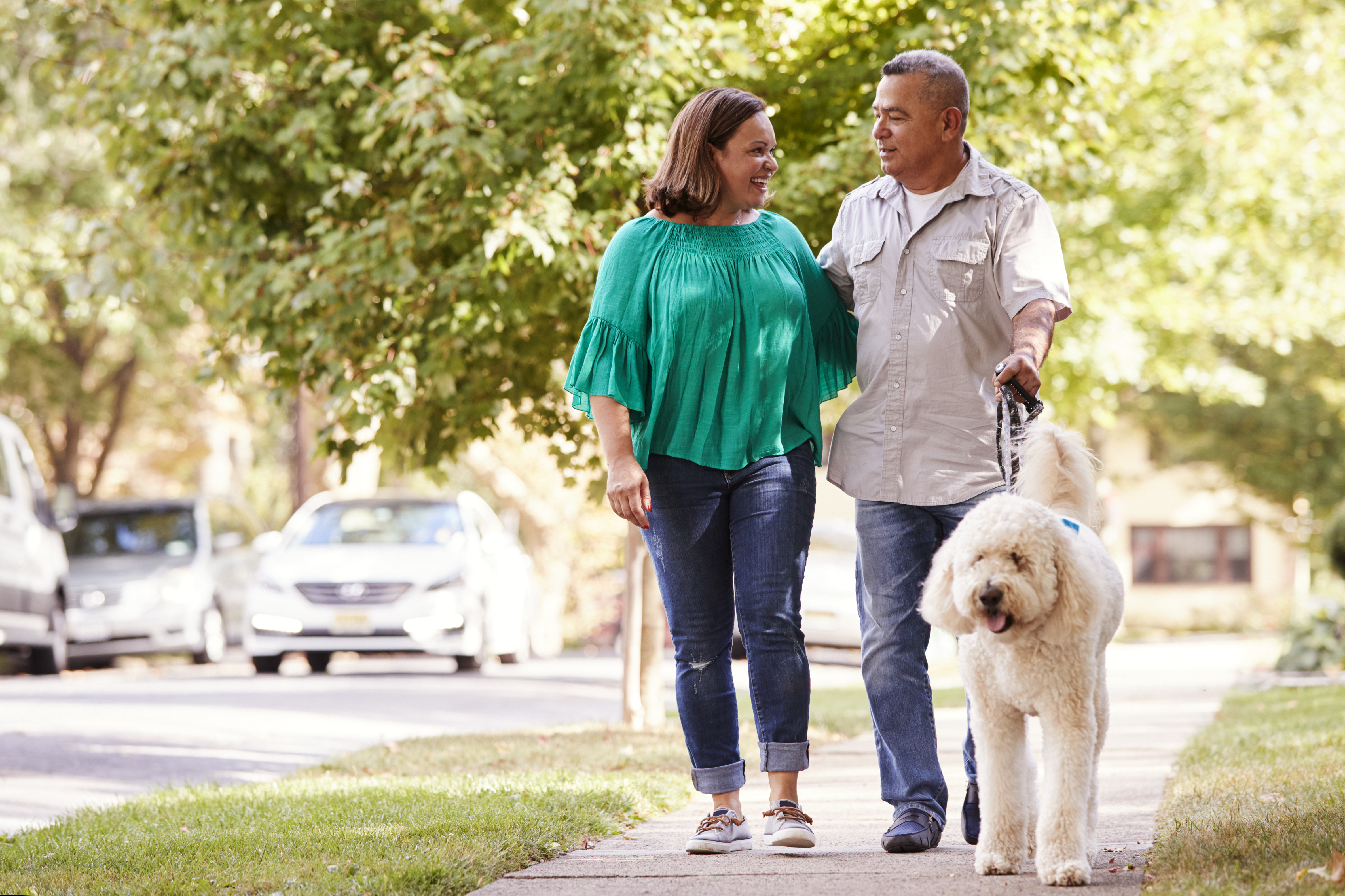September 16, 2024
Colon and Rectal Cancer Risk Factors: What They Are and Who Is at Risk

Everyone’s risk for developing cancer is different, and it can vary by type of cancer. Risk factors range from things within your control, such as diet and exercise, to things you can’t control, such as your age, gender, race, and family history. There are both controllable and uncontrollable risk factors for developing colon and rectal cancer.
Surprisingly, only about five percent of colorectal cancer cases are caused by an inherited genetic mutation. This means that the majority of people diagnosed with colorectal cancer had other factors at play. Let’s look at the risk factors, what you can change, and what you can do about finding colorectal cancer early when it’s easier to treat.
What to Know About Colorectal Cancer
Colorectal cancer describes cancer that develops in the colon or rectum. Typically, these cancers begin as small, noncancerous clumps of cells known as polyps. Over time, some polyps can grow uncontrollably and turn cancerous.
Cancerous polyps are often not noticeable unless detected by a screening test. Most patients do not experience symptoms until the cancer has advanced to a later stage, making it more challenging to treat.

Common Risk Factors Associated With Colorectal Cancer
Anyone can develop colon or rectal cancer regardless of whether you have risk factors. In fact, even adults under the age of 40 are increasingly being affected even though most people are diagnosed after age 50. Let’s look at the risk factors and what you may be able to do about some of them.
Controllable Colorectal Cancer Risk Factors
Several risk factors for colorectal cancer are associated with personal lifestyle choices. These controllable risk factors include:
Heavy alcohol use (3 drinks or more per day) is associated with a 25% increase in risk. Even moderate alcohol use is associated with some increase in colorectal cancer risk.
Lack of exercise
Smoking tobacco
Being overweight
Vitamin D deficiency
Consuming processed meats and red meats. The World Cancer Research Fund studied the regular consumption of processed meat and found that colorectal cancer risk increased more with daily amounts of processed meat. Red meat also increased the risk, but not as much.
Regularly eating highly processed "junk" foods that contain refined carbohydrates and processed sugar.
The best way to reduce your overall colorectal cancer risk is to make positive changes in your life regarding your health. Taking these steps towards a healthier lifestyle lowers your risk of developing colorectal cancer, other types of cancer, and conditions like heart disease and type 2 diabetes.
Uncontrollable Colorectal Cancer Risk Factors
There are also some uncontrollable risk factors linked to developing colorectal cancer. It's good to be aware of these risk factors, even though you can't do anything about them. Uncontrollable risk factors include:
Personal or family history: Individuals have an increased colorectal cancer risk if they or a family member has had colorectal polyps or colorectal cancer.
Inherited genetic syndromes: Lynch syndrome (HNPCC) and familial adenomatous polyposis (FAP) are known to influence whether a person will develop colorectal cancer.
Inherited genetic mutations: There is evidence that a mutation in the BRCA1 gene can increase the risk for colorectal cancer. Although BRCA1 and BRCA2 mutations are most known for increasing breast cancer risk, they are also related to the risk for cancers of the ovary, prostate, and pancreas.
Race and ethnicity: Both African Americans and Ashkenazi Jews (Jews of Eastern European descent) are at a higher risk than other races and ethnicities.
Age: People over the age of 50 tend to be the group most affected by colon and rectal cancers. However, it is increasing among adults younger than that.
Personal health history: Having inflammatory bowel disease, ulcerative colitis, or type 2 diabetes puts you at an increased risk for colorectal cancer.
Taking Steps to Reduce Colorectal Cancer Risk
Reducing your risk of developing colorectal cancer starts with maintaining a healthy weight and making adjustments to your lifestyle and diet. According to the American Cancer Society, you should:
Eat a nutritious diet by incorporating more fruits, vegetables, and whole grains. Aim to get more fiber from apples, avocados, oatmeal, almonds, and chickpeas. Try to limit processed meats, including lunch meat.
Exercise regularly with 2 to 5 hours of moderate-level exercise or 1 to 2 hours of intense physical activity per week. Additionally, take regular breaks each day from prolonged sitting and screen time.
Avoid consuming excessive amounts of processed meat, such as lunch meat, and lower your intake of sugar-sweetened drinks and snacks with refined carbohydrates.

Take Charge of Your Health By Getting Screened
Anyone can develop colorectal cancer even if there are no risk factors. According to the American Cancer Society (ACS), individuals at average risk should start getting screened for colorectal cancer at 45 years old. If you have a family history of colorectal cancer or any lifestyle factors that increase your risk, consider discussing them with your doctor when you turn 30. Your doctor may recommend an earlier screening schedule if necessary.
If you have concerns about your health, especially if there's a family history of colorectal cancer or polyps, talk to your doctor about when to start screening. Some doctors recommend colorectal cancer screening by age 30 when risk is higher than average.
Colorectal Cancer Screening Tests
A colonoscopy is the standard screening method for colon and rectal cancers. However, in recent years, advancements in technology have made it possible for people at average risk to screen at home, especially between the ages of 45 and 50. You can also read our blog: What You Need to Know About At-Home Colon Cancer Testing.
Colorectal cancer screening saves lives. Follow your primary care physician's recommended screening schedule instead of skipping it. If screening detects something abnormal, your doctor will recommend additional testing to make an official diagnosis.
Expert Colorectal Cancer Care in Brevard County, Florida
If you or a loved one has been diagnosed with colon or rectal cancer, the oncologists at Cancer Care Centers of Brevard are ready to assist you at every stage of your journey. We offer personalized treatment plans for colorectal cancer and have multiple locations in the Brevard County area, including Palm Bay, Melbourne, Merritt Island, and Rockledge, FL. Additionally, we provide second opinions on diagnoses and treatment plans.
Categories: Colorectal Cancer